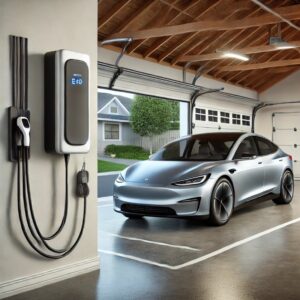Maximize energy savings with Rising Sun Electrify’s expert solar panel installation services. Start your journey to sustainability today.
Understanding Your Energy Needs
Before diving headfirst into solar panel installation, it’s crucial to get a handle on your energy requirements. This not only ensures that your solar system is adequately sized but also maximizes your energy savings in the long run.
Assessing Your Home’s Solar Potential
Your home’s location, roof orientation, and shading play pivotal roles in determining the potential solar energy you can harness. A professional assessment can pinpoint the best spots for solar panels to soak up the sun.
Analyzing Your Current Energy Consumption
Take a look at your energy bills over the past year to gauge your average consumption. This data is gold when sizing your solar system to match or exceed your needs.
Setting Realistic Energy Saving Goals
With your consumption data in hand, set achievable targets for energy savings. These goals guide your solar installation project toward financial and environmental success.
Considering Future Energy Needs
Think ahead about any planned home additions, electric vehicles, or other changes that might spike your energy usage. Future-proof your system to accommodate these needs.
The Importance of Energy Efficiency Before Installation
Upgrading to energy-efficient appliances and making your home more energy-efficient can reduce the size and cost of the solar system needed to power your home. It’s a smart move that pays off both immediately and in the long run.
Tackling your energy needs with a clear strategy not only enhances the efficiency of your solar panel installation but also sets the stage for significant savings.
Choosing the Right Solar Panels
Selecting the appropriate solar panels is a cornerstone of maximizing energy savings. This process involves understanding the different types available, their efficiency, cost, and how they fit with your energy needs.
Types of Solar Panels
Explore the main types of solar panels—monocrystalline, polycrystalline, and thin-film. Each has its advantages in terms of efficiency, cost, and aesthetic appeal.
Efficiency vs. Cost: Finding the Balance
Efficiency determines how well solar panels convert sunlight into electricity. Higher efficiency often comes with a higher price tag, but the right balance can provide optimal savings over time.
The Role of Solar Panel Quality
Investing in high-quality panels from reputable manufacturers can enhance durability and performance. It pays to research and choose panels that offer a strong warranty and proven track record.
Size and Layout Considerations
The physical size and layout of your solar array should match your roof’s space and sun exposure. Proper planning ensures maximum energy production.
Warranty and Longevity
A solar panel’s warranty and expected lifespan are crucial factors. Look for products with long-term warranties and a lifespan of 25 years or more to ensure sustained savings.
By carefully selecting your solar panels, you can ensure that your solar installation is not only efficient but also cost-effective in the long run.
The Installation Process Demystified
Navigating the solar panel installation process can seem daunting, but with a clear understanding of the steps involved, you can ensure a smooth and efficient journey from start to finish.
Pre-Installation Assessments
A thorough evaluation of your property is the first step, determining the best placement for maximum sun exposure and assessing roof strength.
Selecting a Trustworthy Installer
Choosing a reliable and experienced installer is crucial. Look for certifications, reviews, and past project examples.
Understanding the Installation Timeline
The timeline can vary, but knowing what to expect at each stage helps manage expectations.
Navigating Permits and Paperwork
Your installer should assist with the necessary permits and applications, ensuring compliance with local regulations.
Post-Installation Inspections
After installation, inspections verify everything is up to code and functioning correctly, marking the final step before activation.
By demystifying the installation process, homeowners can approach solar panel installation with confidence, ready to enjoy the benefits of renewable energy.
Financial Incentives and Savings
Navigating the financial landscape of solar panel installation unveils numerous opportunities to reduce costs and enhance savings.
Federal and State Tax Credits
Leverage significant savings through available federal tax credits and state-specific incentives, reducing upfront installation costs.
Rebates and Solar Incentives
Research local rebates and solar incentive programs that offer additional financial benefits, further decreasing installation expenses.
Calculating Your Return on Investment
Understand how to calculate your system’s return on investment, considering energy savings over time versus initial costs.
Financing Options for Solar Panel Installation
Explore various financing options, such as solar loans, leases, and power purchase agreements (PPAs), to find the best fit for your financial situation.
Saving Money Through Net Metering
Take advantage of net metering policies that allow you to sell excess energy back to the grid, offsetting your energy bills.
By understanding and utilizing these financial incentives and savings strategies, homeowners can make solar panel installation more affordable and financially rewarding in the long run.
Maintenance and Monitoring for Maximum Efficiency
Ensuring your solar panel system’s peak efficiency requires diligent maintenance and monitoring. Here’s a step-by-step guide:
Regular Maintenance Tips
- Keep solar panels clean to avoid efficiency loss due to debris or dirt buildup.
- Inspect for physical damage or wear and tear periodically.
Monitoring Your System’s Performance
- Utilize solar monitoring systems to track energy production in real time.
- Regularly check for any discrepancies in expected versus actual energy output.
Troubleshooting Common Issues
- Identify and address issues like shading, inverter malfunctions, or connection problems promptly.
Enhancing System Efficiency Over Time
- Assess your system’s performance and consider technological updates or efficiency improvements.
When to Consider Upgrades or Expansion
- Evaluate your energy needs regularly against your system’s output to decide if an upgrade or expansion is beneficial.
By following these steps, you can maximize the benefits and efficiency of your solar panel installation over its lifetime.
Summary
Choosing Rising Sun Electrify for your solar panel installation ensures you’re stepping into a greener future with maximum energy savings. Our comprehensive approach covers understanding your energy needs, selecting the right solar panels, demystifying the installation process, leveraging financial incentives, and ensuring efficient maintenance and monitoring. By partnering with us, you’re not just installing solar panels; you’re investing in a sustainable, cost-effective energy solution tailored to your needs. Contact Rising Sun Electrify today to illuminate your path to renewable energy.
FAQs
Can I monitor my solar panel system’s performance in real time?
Yes, solar panel systems can be equipped with monitoring technology that allows you to track energy production and system health in real time, helping you maximize efficiency.
How often should solar panels be cleaned?
Solar panels should be cleaned periodically, typically once or twice a year, to remove dirt and debris that can reduce their efficiency. However, the frequency may vary based on your local environment.
What are the most common issues with solar panel systems?
Common issues include inverter failures, connectivity problems, and shading that affect panel efficiency. Regular maintenance can help identify and resolve these problems early.
How can I enhance the efficiency of my solar panel system over time?
Efficiency can be enhanced by keeping panels clean, promptly addressing any issues, and considering technological upgrades or expansions based on your evolving energy needs.
When should I consider upgrading or expanding my solar panel system?
Consider upgrades or expansions if your energy needs increase, if there are significant advancements in solar technology, or if you wish to increase your energy independence.











